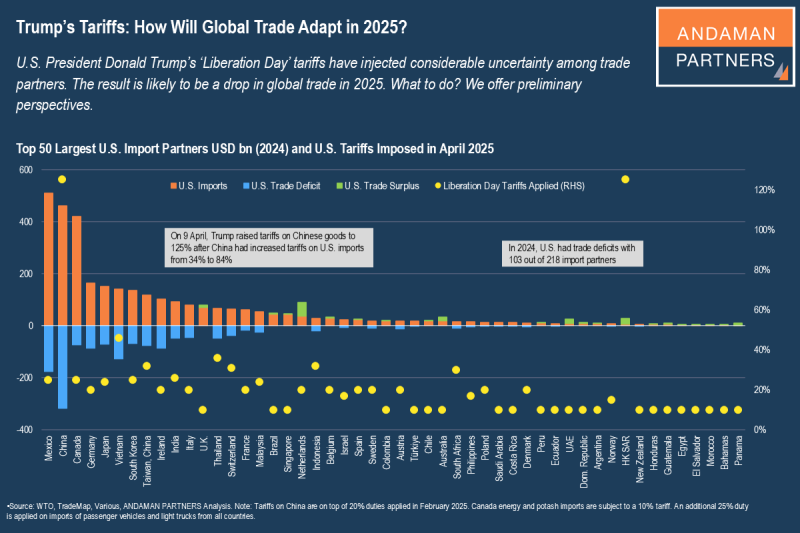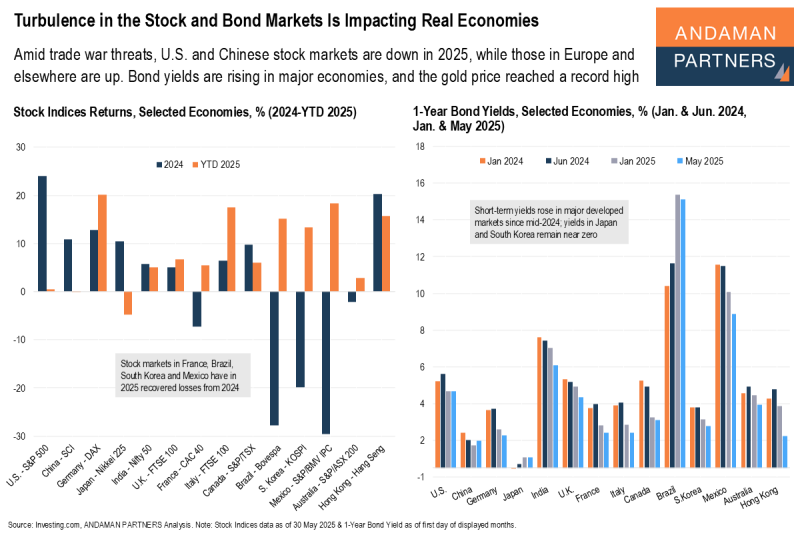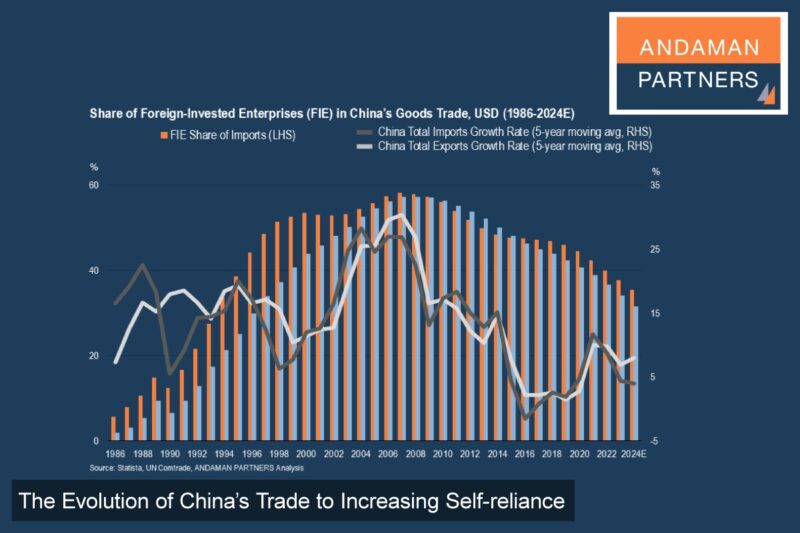Rapid and sustained economic growth based primarily on domestic consumption has made the Philippines a Southeast Asian economic force to be reckoned with, with bright prospects to eventually become one of the world’s largest economies.
With a relatively large and young population of 114.9 million people, of whom 66% are of working age and 28.6% are aged 14 or younger (compared to 16.6% in China), the Philippines has bright economic prospects.
Since 2012, the Philippines’ real GDP growth has consistently exceeded 5%, except in 2020. In 2024, growth reached 5.8% and is projected to remain above 6% through 2029. The economy grew from just over USD 80 billion in 2000 to USD 470 billion in 2024, and is projected to reach USD 707 billion by 2029, placing it just outside the world’s 30 largest economies.
The rest of the century could be an impressive growth story for the Philippines. By 2075, GDP is projected to exceed USD 6 trillion, making it the world’s 15th-largest economy.
Although the Philippines has increased its exports from below USD 40 billion in 2000 to almost USD 80 billion in 2022, GDP is not dependent on export-led growth, as the country generally maintains a trade deficit with imports well exceeding exports. Instead, a large and growing population is the foundation of the country’s economy, as domestic consumption accounts for well over 70% of GDP.
Sector-wise, the country’s economy is based on a rapidly expanding services sector, which accounts for well over 60% of GDP, compared to less than 30% for industry and less than 10% for agriculture.
As a result, the Philippines has become a global leader in providing services for Business Process Outsourcing (BPO), a practice in which companies contract business operations to third-party service providers. Such services include call centres, human resources management, legal services, accounting and payroll, customer services and marketing. Other prominent service sectors in the Philippines are tourism, financial services, information technology and retail and trade.
The country’s large workforce, proficiency in English and cultural affinity with Western and Asian markets are key advantages of its growing services sector.
In short, the Philippines could be one of the most significant economic growth stories of the 21st century and a country that foreign businesses must pay close attention to.
ANDAMAN PARTNERS supports international business ventures and growth. We help launch global initiatives and accelerate successful expansion across borders. If your business, operations or project requires cross-border support, contact connect@andamanpartners.com.

ANDAMAN PARTNERS Was a Co-Sponsor of the South African National Day Reception in Shanghai on 30 May 2025
ANDAMAN PARTNERS was a cosponsor of the South African National Day Reception in Shanghai on 30 May 2025.

Asia’s Shifting Role in Global Supply Chains — Perspectives by ANDAMAN PARTNERS Co-Founder Rachel Wu
Analysis by ANDAMAN PARTNERS Co-Founder Rachel Wu on changing patterns in global supply chains.

ANDAMAN PARTNERS Co-sponsored the West Australian Mining Club Luncheon in Perth on 27 February 2025
WA Mining Club luncheons are valuable ways to network with colleagues and clients and learn about the latest industry insights.

Africa’s Unfulfilled Manufacturing Revolution and New Opportunities of Industrialisation
Africa previously failed to develop a broad manufacturing base despite industrial foundations laid early in the post-colonial period. But Africa’s potential for industrial takeoff remains.
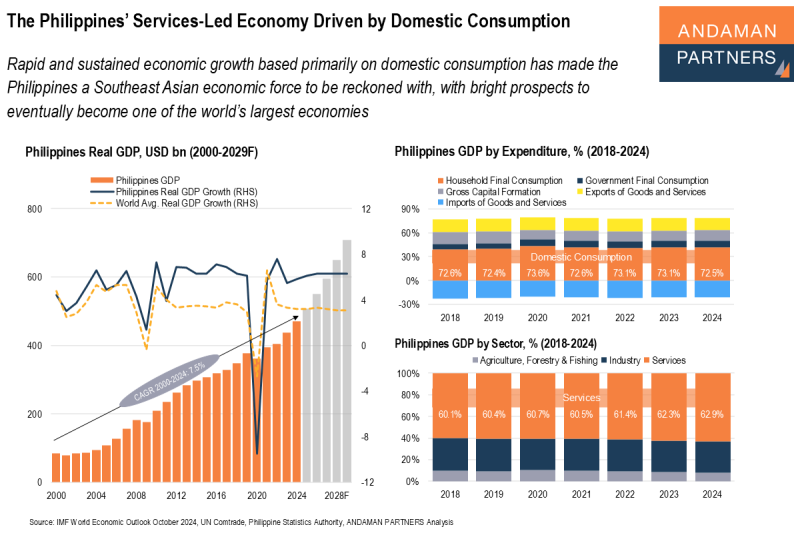
The Philippines’ Services-Led Economy Driven by Domestic Consumption
Rapid and sustained economic growth has made the Philippines a Southeast Asian economic force to be reckoned with, with bright prospects.
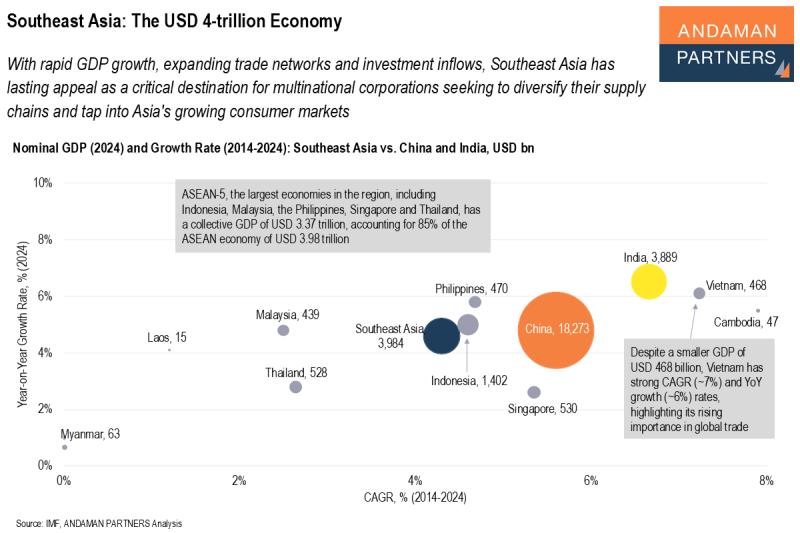
Southeast Asia: The USD 4-trillion Economy
With rapid GDP growth, expanding trade networks and investment inflows, Southeast Asia has lasting appeal as a destination for corporations seeking to diversify supply chains.


